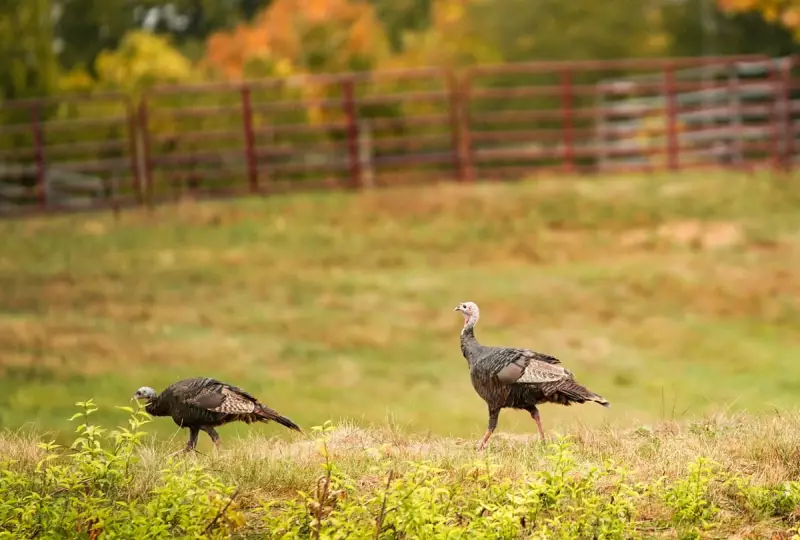
Forever Chemicals Discovered in Maine's Wild Turkeys
Wild turkeys in Maine have been found to contain dangerous levels of "forever chemicals," prompting state officials to issue urgent warnings to hunters. The discovery has raised concerns about the safety of consuming game meat and highlights a growing environmental crisis affecting wildlife across the United States.
State Issues Do Not Eat Advisories
Maine's Department of Inland Fisheries and Wildlife has issued official "do not eat" advisories for wild turkeys and deer harvested in four specific areas north of Augusta, the state capital. The warnings came after testing revealed high concentrations of per- and polyfluoroalkyl substances (PFAS) in the muscle tissue of animals sampled within one mile of areas with contaminated soil.
The department, in collaboration with the Maine Centers for Disease Control, now recommends that nobody consumes deer or wild turkey from these designated wildlife consumption advisory areas. This warning could significantly impact traditional hunting practices, particularly for those who typically harvest their own Thanksgiving centrepiece.
Growing National Problem
Maine is not alone in confronting this environmental challenge. Similar contamination issues have emerged in multiple states across America, including Wisconsin and Michigan, which both issued their own "do not eat" advisories for deer, fish, and birds earlier this autumn.
In January, New Mexico health officials warned hunters about harmful chemicals discovered in wildlife near a lake in the southern part of the state. The pattern suggests a widespread problem affecting various ecosystems and animal species.
The Dangers of Forever Chemicals
PFAS chemicals have been used in manufacturing and consumer products since the 1950s. Their nickname "forever chemicals" comes from their remarkable persistence - they can take hundreds or even thousands of years to degrade naturally. When these substances leak into soil or water systems, they can remain there for centuries, creating long-term contamination issues.
Scientific research has linked PFAS exposure to numerous serious health problems including:
- Increased cancer risk
- Birth defects
- Decreased immunity
- High cholesterol
- Kidney disease
Military Connections and Ongoing Contamination
In several cases, PFAS contamination has been linked to military activities. The Michigan departments of health and human services and natural resources issued do not eat advisories for Clark's Marsh, located near the former Wurtsmith Air Force Base. Officials warned that deer in this area likely contained various PFAS substances.
The contamination has been connected to the military's historical use of firefighting foam. Similarly, New Mexico discovered alarming PFAS levels in the blood of people living or working near Cannon Air Force Base, again traced to military firefighting operations.
Expert Calls for Action
Tasha Stoiber, a senior scientist at the non-profit Environmental Working Group, emphasised the global scale of the problem. "Wildlife is already contaminated with PFAS on a global scale, and that contamination will continue to be an issue until we greatly reduce the use of PFAS in consumer products and industrial applications," she stated.
Stoiber warned that remediating existing PFAS contamination could take decades. She stressed that the most critical steps include phasing out widespread PFAS use in commerce and stopping ongoing discharges into the environment. Federal regulations such as enforceable drinking water standards and stronger protections for source water are essential to reducing PFAS pollution and limiting future exposure.
Public education also plays a vital role, as informed public pressure often drives policymakers to take action against the continued use of these persistent chemicals.
As Maine continues sampling other areas within the state for PFAS contamination, the discovery in wild turkeys serves as a stark reminder of how industrial chemicals can enter the food chain and potentially affect human health for generations to come.





